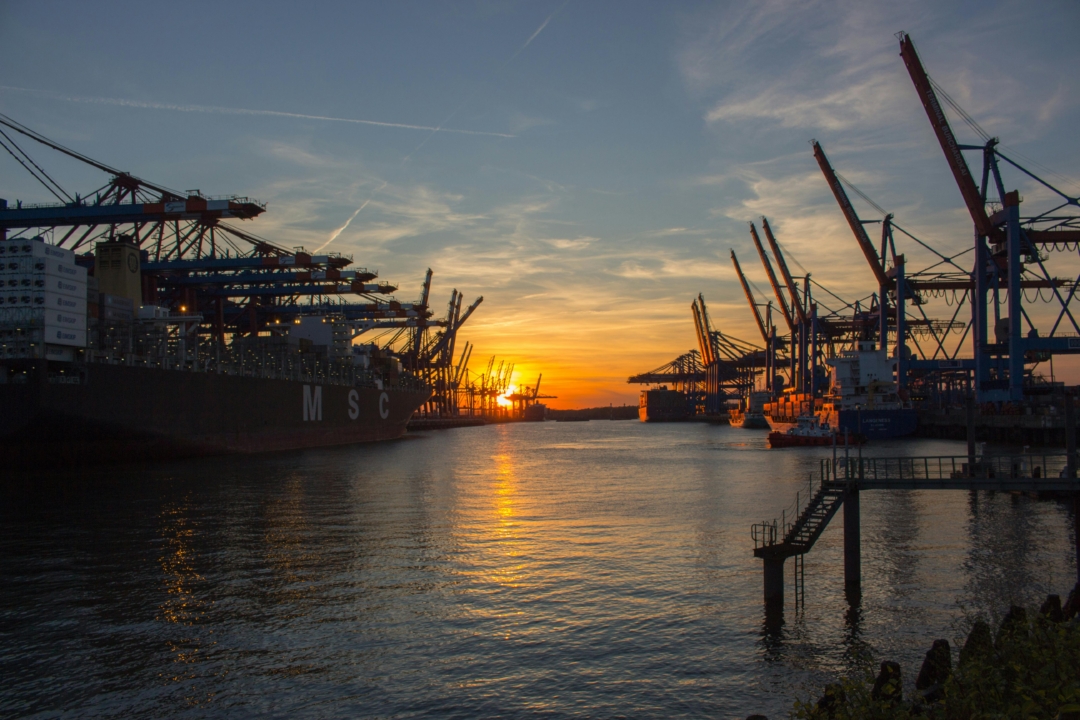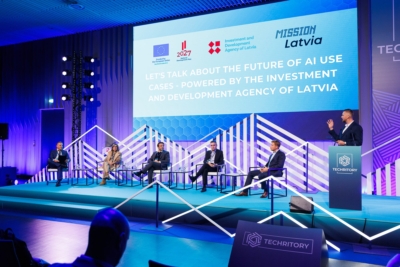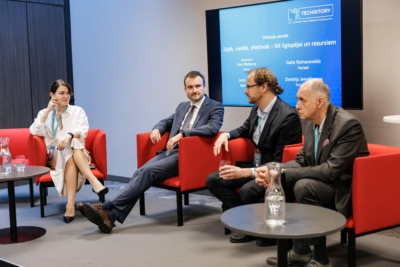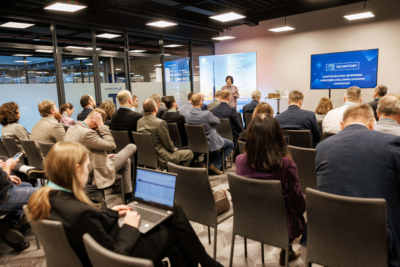For the first time in Techritory history, our forum has a City Partner, and we’re delighted to be partnering with none other than Hamburg.
A hub for innovations, a true example of a smart city and blooming ecosystem that not only supports the economy but also considers the needs of its inhabitants. To learn more about this innovative City Partner of Techritory 2025, we interviewed Hamburg’s Minister for Economy, Dr. Melanie Leonhard.
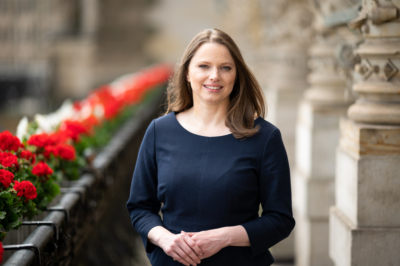
Hamburg consistently ranks highly in European Smart City indices, often leading in categories like IT and communication infrastructure. What is the overarching philosophy of the city’s ‘Smart City’ strategy, and how does that approach translate into tangible benefits for its citizens, not just its industries?
Dr. Melanie Leonhard: Our philosophy is quite simple: digital, where it helps. We use technology where it makes life easier. In the end, IT should serve one purpose – helping people live well in our city. Applying for childcare vouchers, changing your registered address – even in our complex administration, these things can now be done online. Behind the scenes, there are many more projects running, such as our digital twins. They allow us, for example, to monitor bridges digitally and detect wear or damage at an early stage. That helps us plan better and act before problems arise.
While the Hamburg Port is a global leader, Hamburg boasts thriving ecosystems in sectors such as aviation, life sciences, and green technologies. If you had to name one sector outside of maritime logistics that is currently defining Hamburg’s future economy, what would it be and why?
Sustainable technologies for industrial use – and hydrogen plays a key role here as a substitute for fossil fuels. This is not just a vision; it’s already being put into practice. In the Port of Hamburg, for instance, we are building an electrolyser that produces clean hydrogen. This will soon power buses, aircraft and ships in a climate-neutral way. We haven’t just planned a hydrogen pipeline network – large parts of it are already close to completion, and we’re working closely with our European neighbours on imports.
Hamburg and Riga have been described as “bridge-builders” between Northern and Central Europe. From Hamburg’s perspective, what is the core strategic value of deepening economic and innovation ties specifically with Riga and Latvia right now?
We’re stronger together. Riga is incredibly dynamic, especially in areas like telecommunications, AI, and cybersecurity. When we combine that tech expertise with Hamburg’s industrial and maritime experience, exciting things happen. And that’s exactly what the Techritory Forum is all about – not just presenting ideas, but turning them into action.
This year, Hamburg is the City Partner at the Techritory Forum. Why did Hamburg choose this event to showcase its innovations, particularly in the context of the Baltic Sea region?
Collaboration and exchange with our neighbours around the Baltic Sea are very important to us. Here, industry, academia, and public authorities come together with practical know-how and a shared sense of purpose. The Baltic Sea region is currently a huge testing ground for innovation – from 5G and AI to green energy. Techritory is the perfect stage to show that in Hamburg, we don’t just talk about smart cities – we build them. And we like doing that alongside others who share the same spirit.
While ports connect our regions, the Latvian-German cooperation now extends far beyond traditional logistics into areas such as AI, cybersecurity, and green energy. How does Hamburg view this shift, and what is the city’s vision for the next phase of this cross-border innovation ecosystem?
I find it incredibly exciting. Of course, containers and ports still play a big role in Hamburg – that’s part of who we are. But today it’s just as much about data, security, and sustainable energy – the things that truly shape our future. The most inspiring projects emerge when you cross borders – geographically and in your mindset. And that’s exactly what’s happening between Hamburg and Riga right now. It’s fantastic to see such genuine collaboration growing out of it.
One of the recent milestones in German & Latvian cooperation on maritime innovations has been the signing of a Memorandum of Understanding between the Port of Hamburg, the Port of Hamburg Fleet, the Freeport of Riga, LVR Flote, LMT, and the Electronic Communications Office of Latvia in June 2025. What has been accomplished so far, and how does Hamburg view such cooperation from the maritime innovations perspective?
Since the signing, things have really gained momentum between Hamburg and Riga. Our ports are now working closely together on the digitalization of their infrastructure to make operations more sustainable and resilient. But much more has happened beyond that: the Hamburg-based company q.beyond has opened a cybersecurity centre in Riga; the AI cluster ARIC is collaborating with Riga Technical University; Aerones is bringing its wind-turbine robotics to Hamburg; and Nordic Homes is building modular timber housing here. In short: ideas have turned into real projects – and a partnership has become a vibrant collaboration that’s making a visible impact on both sides.
